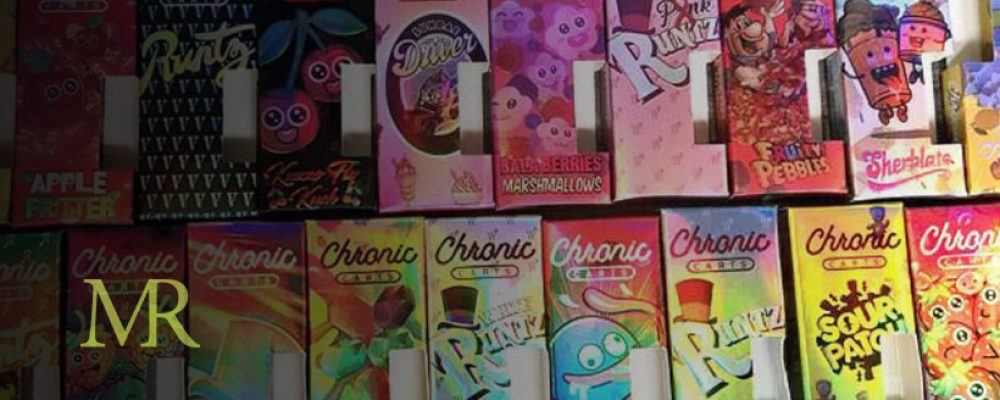Counterfeiters have flourished in the global cannabis world, and they are not above stealing and appropriating already well-known brands and logos. While the most popular cannabis counterfeit products are vape carts, some have even started packaging cannabis flower and selling it under imitated brand-names like Canndescent — this according to a recent report by California-based Mammoth Distribution.
So how do you protect your brand and your reputation in this era of explosive marijuana industry growth? Here are five ways to protect your brand and products against counterfeiters.
1. Trademark It
You’ve put a ton of time and effort into creating a cannabis brand. To protect your hard-earned intellectual property and brand, you must register your trademark. So, while the feds aren’t doling out any cannabis-specific trademarks, state governments (where cannabis is legal, of course) are. Brands can provide protection against counterfeiters. Companies can trademark logos, and in California, when you pay the state to register your trademark, state law enforcement has the jurisdiction to enforce against counterfeiters.
2. Watch your Supply Chain
It’s super important to know where your supplies come from, and another way to protect your company and brand from counterfeiters is to audit your vendors and retailers. While this might seem over-the-top, plenty of vendors are playing both sides. For example, Chinese vendors could receive an order from a stateside vape cart company and make a few thousand extras to sell with your brand online — in essence, doubling down on their profits.
One company in California checks retailers for counterfeit goods in shops — including unlicensed, black-market stores.
3. Use Unique Packaging
If your products are secured in custom and hard-to-copy packaging, you’re helping reduce your exposure to counterfeit products. Packaging can include holograms on packaging or QR codes. Other packaging security measures can be built into custom packaging at an additional cost. Explore your packaging options and go out and see what other companies are doing with their packaging to combat counterfeit goods.
4. Fight Back
So what do you do if you find counterfeit products displaying your brand or trademarks? A typical first step is to send a cease-and-desist letter. If that doesn’t work, you can file a lawsuit. Of course, that is if you can figure out the identity of the retailer or distributor that’s responsible for selling the counterfeit canna-goods.
If the manufacturer comes up clean, then work through the distribution routes to see if you can locate where the lapse is. Regardless, be aggressive and protect your investment. Realistically, this only works in North America. Pursuing an intellectual property or trademark claim against a Chinese manufacturer is most likely going to be a waste of your precious time and money. That’s unfortunate and is yet another reason why due diligence with suppliers and manufacturers is essential.
5. Advertise
Help your customers know they’re buying the real deal. Advertise! This is where you can build your brand and engage with your customers. This might be as simple as listing authorized retailers on your website or social media or using unique product coding. Companies can also notify customers that buying outside the authorized retail list increases the chance they might not be buying your company’s legit product. If you’re auditing your supply chain (see above), and uncover some shady dealings, communicate with your customers. Let them know that their confidence in your product’s integrity is essential to you.
Business is booming. The whole counterfeit situation relating to cannabis products — most commonly with vape carts — is raging out of control. Black market operators are even advertising their fake products on Instagram and Snapchat, which means consumers, retailers, and manufacturers need to be vigilant. An admin for DanksOfficial — an Instagram account that serves as a watchdog for the cannabis industry — cautions cannabis users against purchasing cartridges containing THC from the black market. They argue that unless you can test each individual cartridge, there’s really no way to ensure it’s safe to use (or legit or not).


